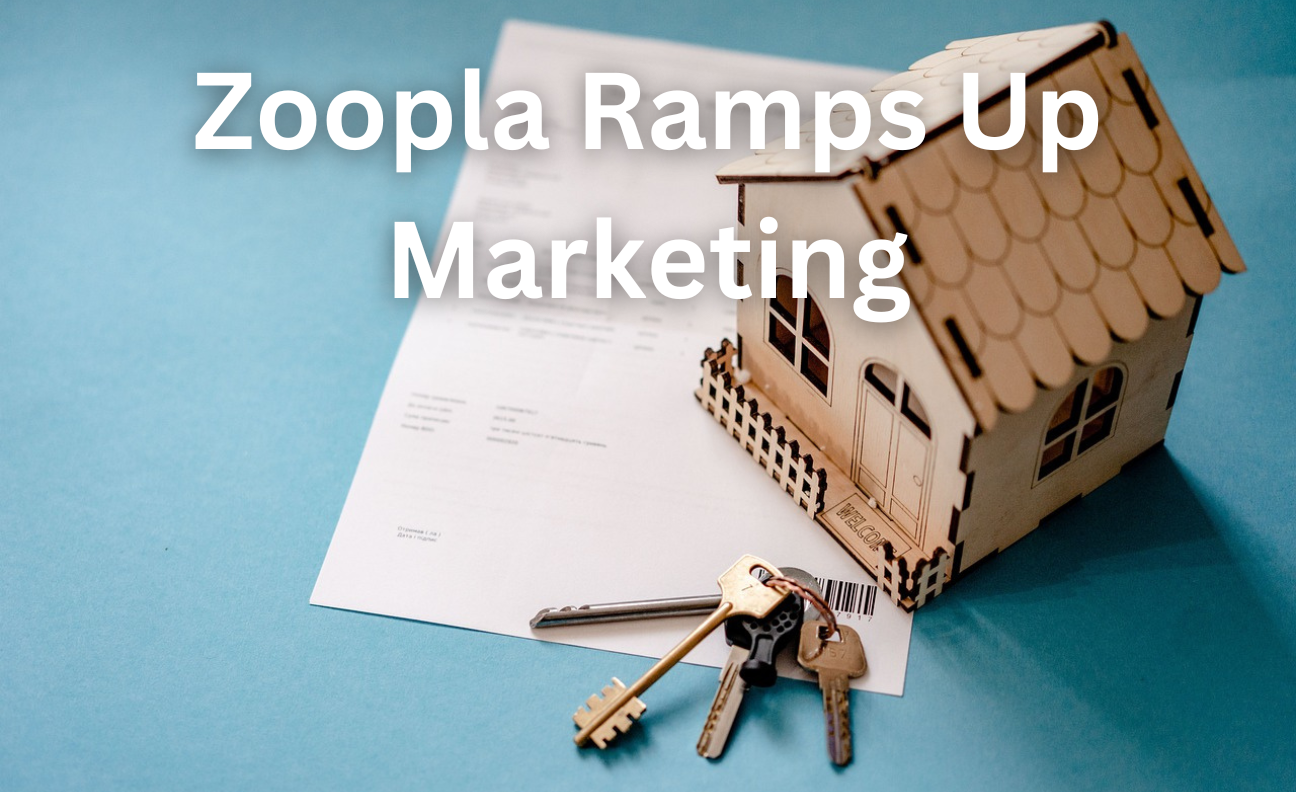In a strategic endeavour to solidify its presence in the highly competitive property market, Zoopla has significantly increased its marketing expenditure by 41% for the fiscal year 2024.
This increase is a deliberate move to “defend” its market share against aggressive competition from other property platforms.
What’s more, Zoopla’s head of marketing emphasises that their marketing spend is carefully planned and scientifically allocated, ensuring maximum impact during key market opportunities.
Scientific Spending and Timing
Leveraging analytical insights, Zoopla strategically concentrates the bulk of its marketing budget in the first half of the year. This aligns with two major traffic surges on their website – the first immediately following Boxing Day and the second soon after Easter.
Capitalising on this increased activity, Zoopla launched an eight-week, full-funnel marketing campaign on May 6, coinciding with a bank holiday to maximise exposure and engagement.
Targeted Campaigns During Key Events
The current iteration of the campaign, “Just ask Zoopla,” which debuted in mid-May 2022, is set to capture audiences during major events, such as the FA Cup Final and the Euros.
The campaign is featured across various media platforms, including linear TV, video on demand (VOD), YouTube, and several social media channels, in addition to prominent placement on Zoopla’s own digital properties, like their homepage and mobile app.
Regional Focus and Localised Advertising
Zoopla is doubling down on its investment in regions identified as high-potential markets, specifically the North West and West Midlands.
The campaign includes localised advertising efforts, spanning local radio stations, out-of-home (OOH) media, and branded taxis launched in March.
Furthermore, these efforts are aimed at enhancing consumer volume and expanding customer business in these key areas.
Market Dynamics and Economic Indicators
Despite a dramatic 59% decline in overall category spending in the previous year, forecasts for 2024 indicate a return to normal levels.
Supporting this optimistic forecast, Bank of England data from March 2024 shows a 20% increase in mortgage approvals compared to March 2023, with a total of 61,325 approvals.
This suggests a resilient housing market, bolstered by a strong demand for property despite persistently high mortgage rates.
Brand Impact and Consumer Engagement
Since the launch of the revamped marketing strategy, Zoopla has recorded a 7% growth in brand consideration and a 10% increase in association with key services, such as house pricing and agent connections.
The campaign has also significantly enhanced Zoopla’s session share, showing a growth of 1.5% with each campaign activation – translating to a substantial 6% annual increase in leads.
This demonstrates a robust consumer response, with users increasingly turning to Zoopla for property valuations and inquiries about potential purchases.
🧵Our latest House Price Index just dropped
— Zoopla (@Zoopla) April 29, 2024
Here are the headlines to kick things off…
⬆️ Sales volumes are up 12% year on year
💰Average UK house price is £264,5000
🏡 UK house prices are down -0.2% in the year to March 2024
A Human-Centric Marketing Approach
Reflecting on the shift in marketing strategies, the head of marketing at Zoopla notes a transition from a technical-focused approach to a more human-centric strategy.
This new approach aims to engage customers throughout their home decision-making process, effectively positioning Zoopla as a comprehensive partner in home decisions.
The campaign’s success is attributed to its ability to resonate with consumers on a personal level, connecting with them as individuals rather than just potential buyers or sellers.
Conclusion: Strengthening Market Presence Through Strategic Marketing
Zoopla’s proactive and strategic marketing initiatives are crucial in maintaining and enhancing its market presence.
By aligning their marketing efforts with consumer behaviour and market dynamics, and by fostering a deeper connection with the community, Zoopla is not only defending its market share but is also establishing itself as a leading and trusted entity in the UK property market.
Through these efforts, Zoopla continues to build and strengthen relationships that transcend the traditional boundaries of property search platforms.









